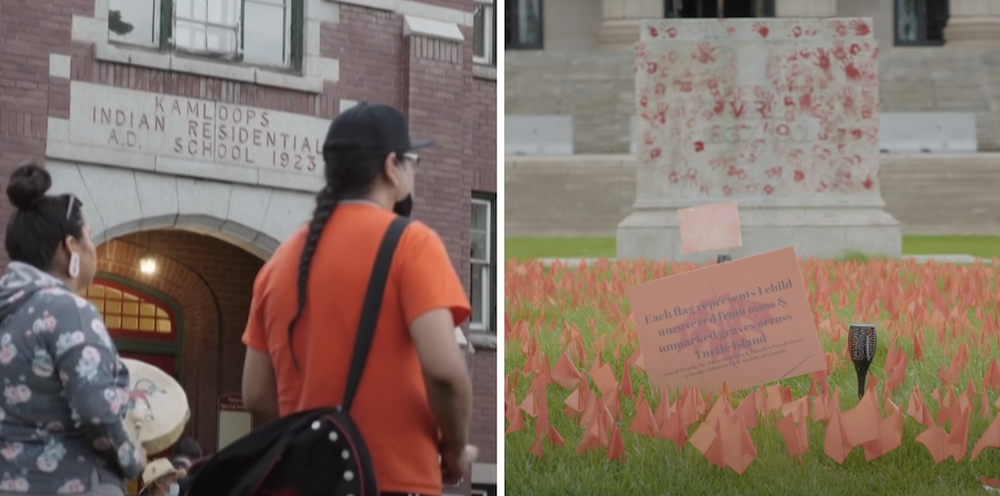
Nonetheless, more excavations have been called for to prove definitively whether the allegations are true.
The fact that no human remains have yet been uncovered from the sites has cast doubt on the idea that there were, in fact, mass graves. Nonetheless, more excavations have been called for to prove definitively whether the horrific allegations are true, according to the New York Post.
In May 2021, leaders of the Tk’emlúps te Secwépemc First Nation reported over 200 gravesites at a former residential school near Kamloops, British Columbia. The discovery of underground anomalies was made via ground-penetrating radar, as well as "oral history and folklore." No hard evidence has been released to back up the claims, nor has a dig taken place to uncover the alleged human remains.
Following the news, National Chief of the Assembly of First Nations Perry Bellegarde called for a "thorough investigation into all former residential school sites," saying it "could lead to more truths of the genocide against our people."
In the years since, while numerous other mass grave sites have been reported, only one excavation operation has taken place.
On August 19, Chief Derek Nepinak of the Minegoziibe Anishinabe First Nation revealed that "no conclusive evidence of human remains" had been found under Our Lady of Seven Sorrows Catholic Church, which is the site of a former residential school in Pine Creek, Manitoba.
Nepinak added, however, that the discovery "should take nothing away from the difficult truths experienced by our families who attended the residential school."
His sentiments have been shared by many, who suggest that the "deplorable evil" of Canada's residential school system, which "forcibly separated children from their families for extended periods of time and forbade them to acknowledge their Indigenous heritage and culture or to speak their own languages," should be recognized regardless of whether or not human remains are found under the alleged mass graves.
The number of children who died at the institutions is in the thousands, however not all have been identified, leading many to believe they remain buried in the unmarked graves.
Those who question the mass graves narrative have often faced ostracization from their academic or political communities. In May, for example, former Manitoba attorney general James McCrae resigned from his position on a government panel after his claims that "verifiable evidence" of the claim "has been scarce, or non-existent" sparked anger.
Powered by The Post Millennial CMS™ Comments
Join and support independent free thinkers!
We’re independent and can’t be cancelled. The establishment media is increasingly dedicated to divisive cancel culture, corporate wokeism, and political correctness, all while covering up corruption from the corridors of power. The need for fact-based journalism and thoughtful analysis has never been greater. When you support The Post Millennial, you support freedom of the press at a time when it's under direct attack. Join the ranks of independent, free thinkers by supporting us today for as little as $1.
Remind me next month
To find out what personal data we collect and how we use it, please visit our Privacy Policy









Comments